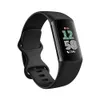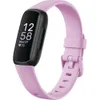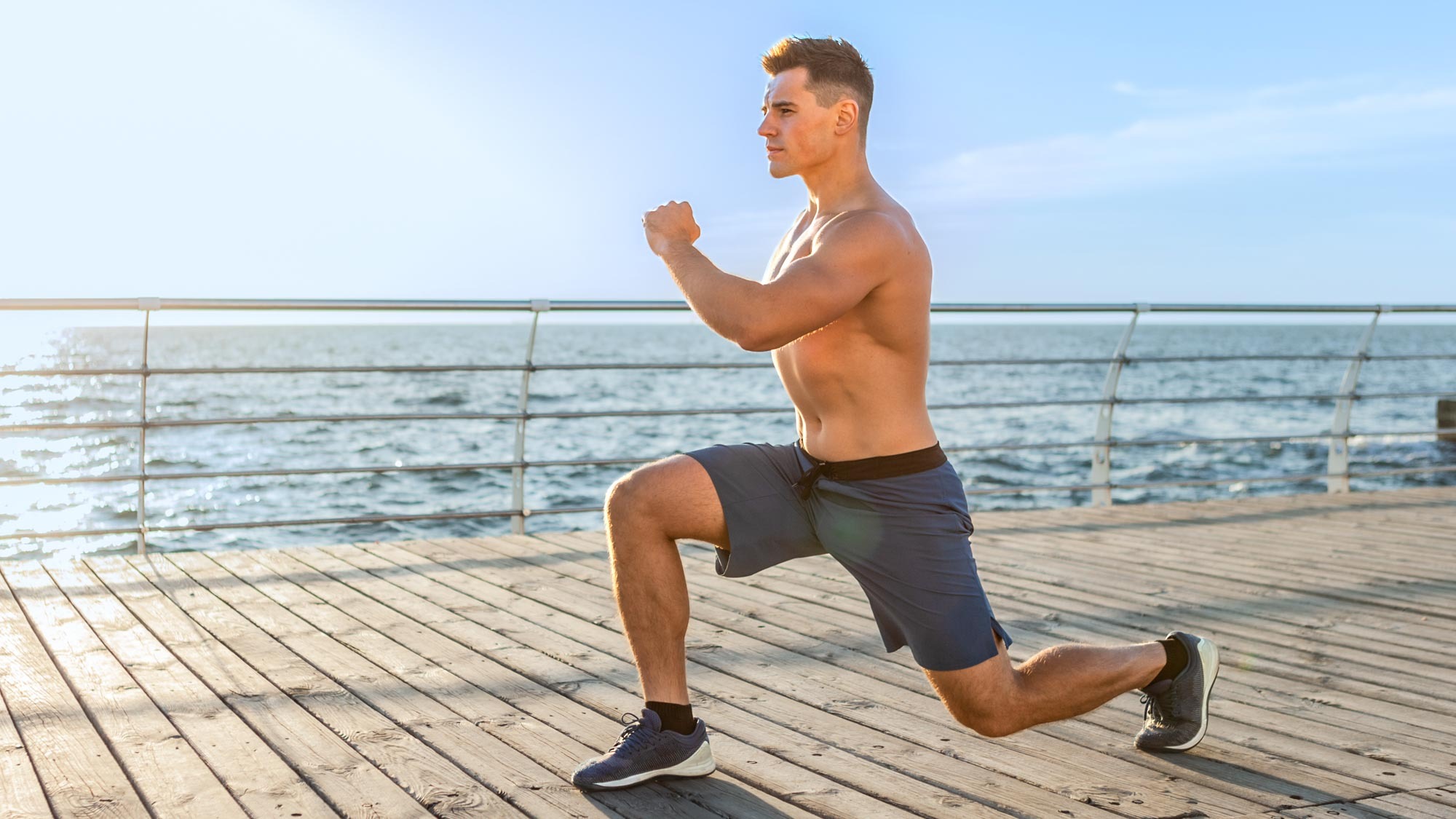
Tight and stiff hips have a habit of creeping up on us, inhibiting movement, increasing the likelihood of injuries and negatively impacting athletic performance in the long run.
Why not try this low-impact five-move walking workout to reduce tight hips, boost flexibility and build a stronger body? Forget under-desk treadmills or the best treadmills for running and walking, you only need your body weight and a spare 30 minutes. Besides, if your goal is to build mental strength, why not get outdoors and into nature?
Below, we cover how to do the walking workout, alternatives you can try and the benefits of walking for cardiovascular and muscular health. Here’s everything you need to know.
What are the benefits of a walking workout?
Although a gentle walk can be relaxing and enjoyable or more intense and raise your heart rate (we hit the research to discover the difference between hiking versus power walking for calorie burn), have you thought about what walking could do for stiff hips and lower body strength?
Research, published in the journal Biomedicine, tells us that some back pain can be attributed to tight muscles surrounding the spine and pelvis, including the glutes, hips and hamstrings.
With that in mind, if you have a job that requires plenty of sitting, you might find that stretching your hip flexors regularly, strengthening your lower body and moving more throughout the day — a little trick called NEAT — could improve the quality of movement during daily tasks and exercise, boost metabolism and even improve mood.
Build resilient hips, hamstrings, glutes, quads, calves and core muscles with these five exercises and a short beginner-friendly walking workout.
Get instant access to breaking news, the hottest reviews, great deals and helpful tips.
What is the 5-move walking workout without weights?
If you’re using a treadmill, you can easily adjust the incline and decline settings accordingly, and if you prefer to work outdoors, find a hill, staircase, or similar.
Set a rolling 30-minute timer, then perform each exercise for 45 seconds and gently walk or jog on flat ground or an incline for 15 seconds between. Complete the 5 exercises, which equals 1 round, then repeat for 6 rounds, totaling 30 minutes.
By the end of the workout, your leg muscles should feel pretty cooked and your hips and glutes stretched and lengthened. Remember to warm up with gentle movement and lower body mobility exercises to help warm the muscles and send fresh blood flow and oxygen around the body.
The session is low-impact and combines walking, lunging and stretching, but you could add some light dumbbells, ankle weights, or a weighted vest to increase the intensity.
- Incline walking lunges
- The World’s Greatest Stretch
- Skater steps (jog or walk)
- Step-up to reverse lunge
- Incline side lunges
1. Incline walking lunges
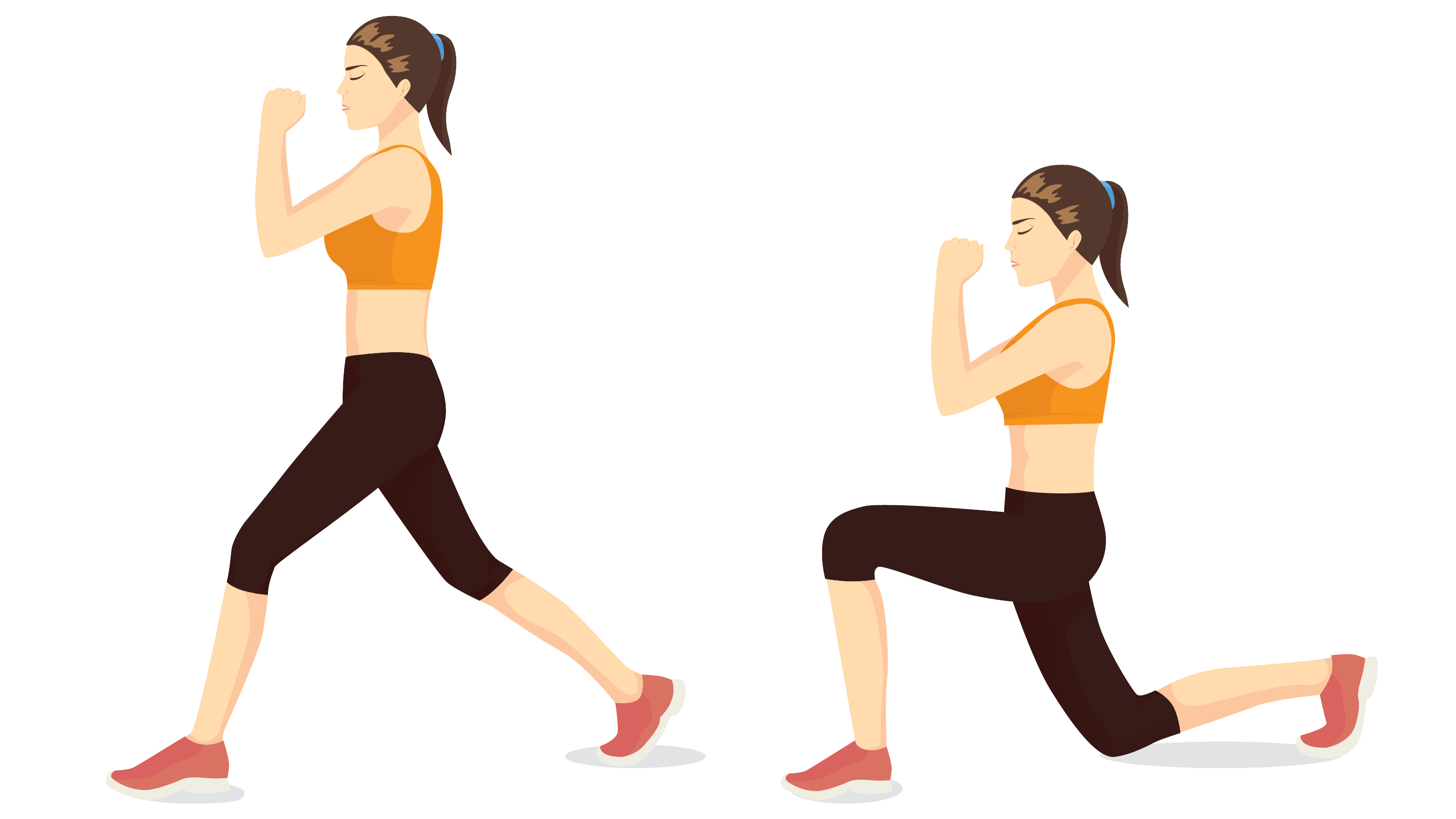
Walking lunges torch the lower body muscles, especially if you choose an incline. Make sure to lower your back knee to the ground to reach proper depth without hitting your knee against the ground.
- Start at the bottom of a hill, slope, or staircase
- Take a large step forward with your right foot, landing your entire foot on the ground
- Keep your torso upright and core engaged. You can raise your arms overhead to help engage your upper body, hold weights, or place your hands on your hips
- Lower your left knee toward the ground into a lunge, keeping the weight distributed between your front foot and the ball of your back foot
- Slightly lean forward to help engage your glutes
- Drive upward to stand as you step forward with your left leg and repeat on the other side
2. The World's Greatest Stretch (WGS)
The humbly named "World's Greatest Stretch" mobilizes the entire body and stretches the hip flexors, glutes and legs. Lift your back leg to engage the quad, or lower the knee to the floor for extra support.
- Start on flat ground in a low lunge with your left leg forward and right knee resting on the ground
- Tuck the toes of the right foot and lift the back leg if you prefer, keeping the leg straight and quad engaged
- As you inhale, lift your left arm upward and gently twist toward your left leg
- As you exhale, draw your left elbow downward to tap your left ankle. You could also sweep your left arm across the body to the right side
- Repeat for several reps, then switch sides.
The humbly named "World's Greatest Stretch" mobilizes the entire body and stretches the hip flexors, glutes and legs.
3. Skater steps
Skater steps increase cardiovascular effort and test balance, stability and coordination while working your body unilaterally.
Moving between your right and left sides of the body with speed and power, especially on an incline, teaches the muscles to fire and recruit together, helping to engage your smaller, stabilizer muscles and the larger muscle groups like the glutes and quads.
Use your arms to help drive the movement and squeeze your core muscles as you move. If you reach the top of your incline, jog back to the starting position and repeat.
- Using flat ground, a staircase, or a hill, step your left foot forward and to the left. If you’re using a step, aim for the second step, or third if you have longer legs
- Allow your right leg to follow without your right foot touching the ground, then step your right foot over to the right a few steps up
- Continue climbing, stepping as far to each side as you can and taking several stairs at a time
- Once you feel comfortable, speed up. You could also practice on the spot by moving from side to side
- Jog back down and repeat
4. Step-up to reverse lunges
The exercise requires coordination, balance and stability, so take your time and practice on flat ground first before adding an incline. The video above demonstrates using a single step and dumbbells, but you can perform the exercise anywhere using your body weight.
- Face the steps (or similar), then position your right foot up a few steps. You should feel a gentle stretch through your hip flexors
- Shift your weight forward, engage your core and keep your torso upright
- Push into your front foot and step up by drawing your left knee toward your chest, standing on one leg
- Step your left foot back to the starting position, then step back with your right leg into a reverse lunge, lowering your right knee toward the floor
- Return to standing, then repeat for several reps
- Switch sides
5. Incline side lunges
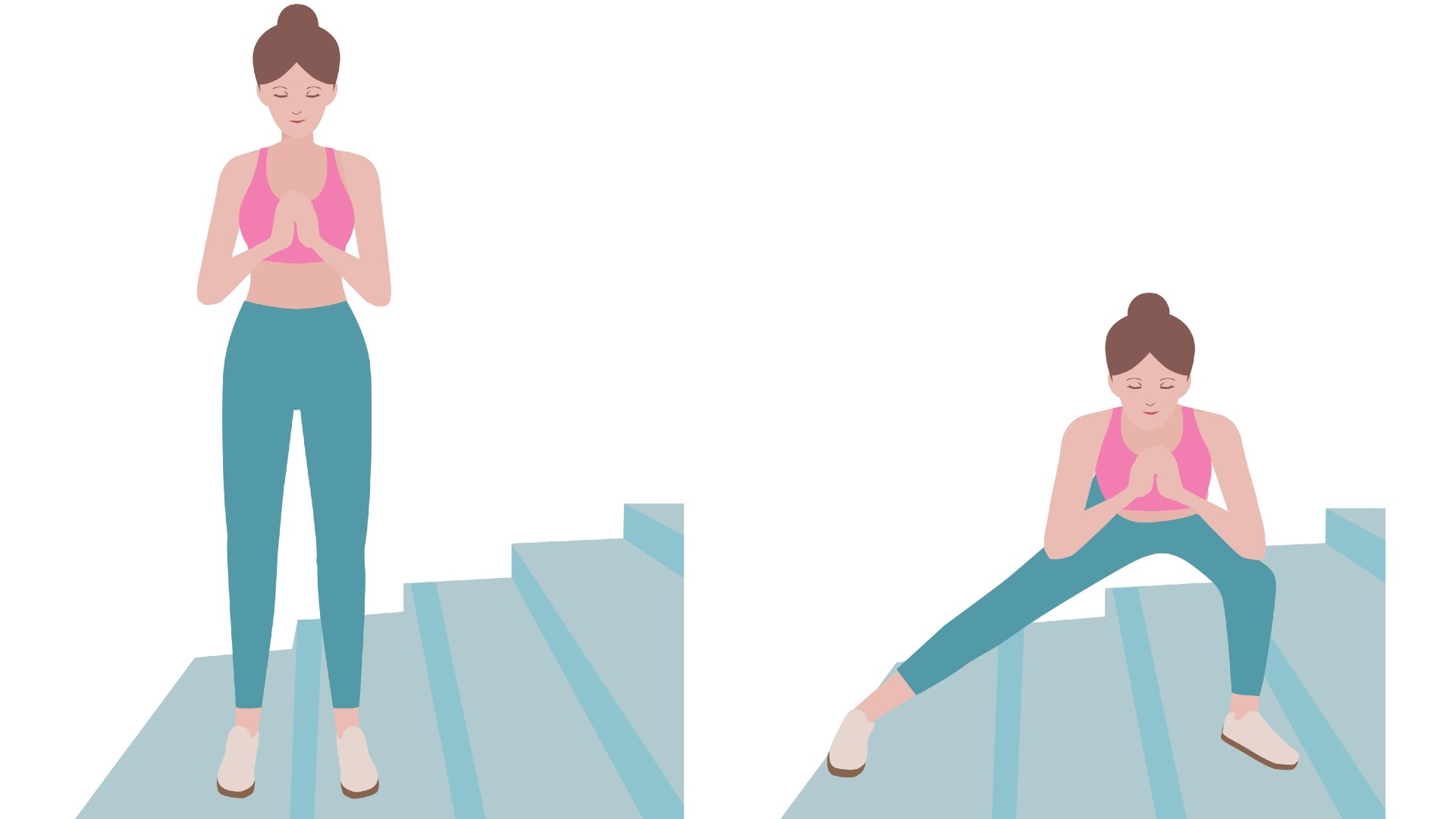
Side lunges, lateral lunges, or however you refer to them — the only way is sideways for this exercise. The move stretches the adductors (inner thighs) and develops lower body strength and flexibility while engaging your gluteus medius muscles, or outer glutes. Perform on flat ground first, then add an incline for a challenge.
- Start side-on to the incline with your feet hip-width apart and your right foot closest to the step or incline
- Take a big step to the side and place your right foot down with your toes pointed in the same direction as your body
- Lower into a side lunge by bending your right knee
- Sit as low as you can, keeping the weight through your midfoot and heel
- Drive through your right foot, push the ground away and step your left foot to meet your right hip-width apart
- Continue climbing the staircase, switching sides every few reps by turning to face the other way
The benefits walking workouts for tight hips
It doesn’t matter whether you’re walking for weight loss, mindfulness, or to help build lower body strength, walking for just 30 minutes a day contributes toward a healthy lifestyle and helps get you moving.
So even if you can’t get to the gym one day, going for a walk or trying a walking workout could still benefit you and help maintain a healthy metabolism.
Moreover, this walking routine adds lunges into the mix and stretches your hips and quads, and we’ve heard this hack can spice up TikTok trends like the Hot Girl Walk; lunges strengthen the hips, quads, glutes, hamstrings, calves and even improve your overall range of motion.
Adding load to exercises like lunges can help you build lower body strength. However, bodyweight training is still an effective and often low-impact way to strengthen joints, bones, muscles and ligaments while remaining accessible and functional.
According to a meta-study published in the Journal of American Cardiology, 7,000 steps a day appears to be as beneficial for your health as the unfounded 10,000 steps theory, and your pace or intensity could matter more than step count, which researchers say is way more important than focusing on 10,000.
More from Tom’s Guide
- I switched my Converse for the Helly Hansen Coastal Hiker boots — here’s why I’m not going back
- I'm a personal trainer, strengthen your core and build lower body muscle with these 3 bodyweight dumbbell exercises
- I walked 10,000 steps a day for a month — here’s what happened

Sam Hopes is a level 3 qualified trainer, a level 2 Reiki practitioner and fitness editor at Tom's Guide. She is also currently undertaking her Yoga For Athletes training course.
Sam has written for various fitness brands and websites over the years and has experience across brands at Future, such as Live Science, Fit&Well, Coach, and T3.
Having coached at fitness studios like F45 and Virgin Active and personal trained, Sam now primarily teaches outdoor bootcamps, bodyweight, calisthenics and kettlebells.
She also coaches mobility and flexibility classes several times a week and believes that true strength comes from a holistic approach to training your body.
Sam has completed two mixed doubles Hyrox competitions in London and the Netherlands and finished her first doubles attempt in 1:11.
 Club Benefits
Club Benefits








